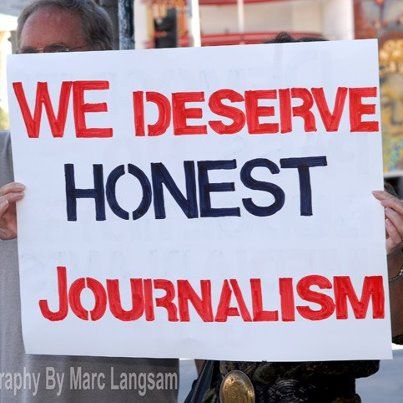Fake News brings major changes to the consumption of information
I remember the days when we walked to a store about two miles away to buy the daily newspaper for my dad. Back home we were quick to read the comic strips before he came home to update himself on the affairs of the world. We had no radio or TV back then.
When radio and TV made their appearance in our home, the newspaper gradually moved to second place for our daily information intake.
Fast forward a few decades to the era of the internet and social media. Millions of people around the world write about what they see and hear around them, and do so mostly without bias. They are quick to report on all kinds of newsworthy happenings, usually much faster than the Main Stream Media (MSM). Add smart phones to the mix, and you have eye witness reporting complete with pictures and video.
To find accurate, useful information, one only has to scroll down the new, hot and trending lists on a newcomer to the social media scene, Steemit, and you have a volume of timely information at your finger tips. Most of these items never see the light of day on MSM, simply because it is not part of their agenda. There is also Twitter, Facebook and other social media platforms, although censorship and the threat of sanctions fuelled by their own bias, dilutes the newsworthiness of posts there.
Thank goodness for free speech Steemit!
Talking of bias, it seems that some unseen force determines how news should be slanted, what portions should be left out, or coloured to paint a picture that is slightly different than the full truth of the matter. When different news outlets report on incidents in exactly the same way, leaving out the same information and maintaining the same slant, it is clear that they sing from the same songbook. This flies in the face of honest journalism and insults the intelligence of the general public.
Misinformation, disinformation and censorship are tools created for the purpose of shaping the opinions of consumers. As if this is not enough, news outlets also offer their opinion on important matters as part of their service. This is, of course, totally unnecessary as everybody is quite capable of formulating their own opinion, based on how it impacts their own life and circumstances. MSM earned their fitting nickname “Fake News,” and now find themselves in the indoctrination category in most people's minds.
MSM are dealing with a sharp decline of their customer base, yet are slow to make the necessary adjustments to their business model. They don't seem to understand that their support base already are aware of the news of the day before they sit down to watch the evening news. They read it on their smartphone on their way home after work.
Needless to say, MSM have only themselves to blame for the growing skepticism and distrust that continues to plague them. More and more people are cutting their cables, saving costs, and receiving better distribution of information and greater choice. What happened to the telephone industry when smart phones invaded the market, is now happening to television networks – there is no point in paying for a landline and a cellphone bill. In the same way television is becoming redundant, and the poor quality of service provided by MSM is a great motivation to end subscriptions.
The problem with information distributed by MSM is that you never know if it is true. Their headlines are carefully formulated to sell, and not to inform. I have never been able to find one good reason why one should choose to subject oneself to obviously biased, censored, and slanted information while the truth is so easily accessible.
Our family cut our television cable over two years ago, and never missed it. We are better informed with the kind of information that we need, and we find it rather amusing to see the futile attempts of the once mighty MSM to influence people's opinions with their biased reporting.

The truth still matters.
*Image source: Carole Dagostino on Pinterest
Worth watching:
Thank you!
Good article!